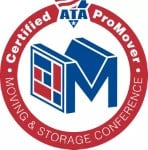Thinking of moving out on your own for the first time? Learn everything you need to consider before taking the leap.
What you’ll learn:
-
Pros and cons of solo living
-
Expected costs that come with the move
-
Budgeting strategies
-
Emergency preparedness
-
How to decide if you’re ready
Moving out on your own for the first time can be an exhilarating experience filled with new freedoms, opportunities, and adventures. The excitement of having your own place, decorating it in your own style, and living with complete freedom is unparalleled. If you’re considering flying the coop, you should know that this new phase of life comes with a significant amount of responsibility and financial commitment. While the thought of living on your own may be thrilling, it’s essential to proceed with caution.
Rent, utilities, groceries, and other expenses can add up quickly, and without proper budgeting, it’s easy to get into financial trouble. There are other unexpected costs such as security deposits, moving expenses, and emergencies that can arise.
Despite these challenges, moving out provides the chance to develop your independence, decision-making skills, and creativity. It also allows you to explore new opportunities and meet new people, which can broaden your horizons and enhance your life experiences.
This article aims to help you navigate the challenges of moving out on your own. It will cover everything from calculating the cost of living and creating a budget to saving for deposits and emergencies. Whether you're moving out for the first time or looking to improve your financial management skills, this article will provide practical tips and insights to help you make the most of this exciting new chapter in your life.
What are the costs of moving out?
Let’s consider the expenses you'll face when you decide to move out on your own. Everyone has their own unique situation, but these are the most common costs you'll need to consider as you plan your move.

- Rent: This is the most significant expense you'll have when moving out. In the United States, the average cost of rent is $1,463 per month. It varies by city and neighborhood, so we recommend collecting data on areas with different price points to help you make a decision.
- Security deposit: Landlords often require a security deposit before you move in. This is usually one to two months' worth of rent, which will be refunded at the end of your lease if you leave the property in good condition.
- Utilities: Utilities such as electricity, gas, water, and internet are essential but can add up quickly. In the United States, the average cost of utilities is $398 per month. This doesn’t include monthly subscriptions to services like Netflix.
- Furniture and household items: If you're moving out for the first time, you'll likely need to purchase furniture and household items such as bedding, kitchenware, and cleaning supplies. These costs can vary widely depending on your preferences and needs.
- Food and groceries: You'll need to factor in the cost of food and groceries into your budget. In the United States, the average cost of food and groceries for one person is $302 per month. That doesn’t account for eating out at fancy restaurants.
- Transportation: If you own a car, make sure to factor in the cost of gas, insurance, and maintenance. If you rely on public transportation, consider the cost of tickets or a monthly pass.
- Moving expenses: Whether you're hiring a moving company or renting a truck, moving expenses can add up quickly. In the United States, the average cost of hiring a moving company is $1,250 for a local move and $4,890 for a long-distance move. Make sure to get moving quotes before making a decision to do it yourself.
- Personal expenses: Finally, don't forget to factor in personal expenses such as entertainment, clothing, and other discretionary spending. In the United States, the average cost of personal expenses is $224 per month. You may have to make some sacrifices in this area to keep your spending in check.
Create a budget and stick to it
Creating a budget before moving out is crucial for financial stability and ensuring that you can afford your new living expenses. For one, it will help you save money for the move and you’ll have a headstart on the good habit you’ll need once you’re on your own. Once you have a budget in place, it's equally important to stick to it.
To stick to your budget after moving out, you need discipline and consistency. It's important to track your expenses and income regularly to ensure you're not overspending. You can do this manually using a spreadsheet or budgeting app, or automatically through online banking tools. You also need to have an emergency fund set aside for unexpected expenses such as medical bills or car repairs. A general rule of thumb is to have three to six months' worth of living expenses saved up in case of an emergency.
As movers with 30 years of experience, we can say for sure that sticking to your budget is crucial when living on your own for the first time. We've seen many people overspend and struggle financially. Aim to keep your housing costs under 30% of your income and allocate 10-15% for utilities and other essentials. Trust us, a little bit of budgeting goes a long way in avoiding financial stress down the road.
By creating a budget and sticking to it, you can avoid financial stress and enjoy the independence of living on your own. It may require sacrifices and adjustments, but the long-term benefits of financial stability are well worth the effort.
Saving for rent, deposits and moving expenses
When you're preparing to move out on your own, it's important to save up for various expenses you'll encounter. Start by figuring out how much you'll need to save each month to reach your goal.
Look for ways to reduce your current expenses. This can include cutting back on non-essential purchases like eating and drinking at restaurants and bars. Sometimes you can reduce your monthly bills by negotiating with service providers or finding cheaper alternatives, or even picking up a side hustle to earn extra income.
Consider setting up automatic savings transfers. This allows you to set aside a specific amount of money each month without having to remember to do it manually.
Make sure you have a steady job
Before you move out on your own, you need to have a steady source of income to cover your expenses. If you aren’t already working full time, it might not be the right time to move out.
Once you’re getting a steady paycheck and feel stable in your job, figure out what your average monthly income is. As a general rule of thumb, it's recommended that no more than 30% of that should go towards rent, utilities, and other basic recurring expenses. This allows for a comfortable living situation without overspending or becoming financially burdened. You need to account for the other monthly costs mentioned above when budgeting to ensure you have a clear understanding of your financial situation.
Consider getting a roommate
Having a place all to yourself is tempting, but getting a roommate can offer several benefits. Sharing living expenses can significantly reduce your monthly costs, including rent, utilities, and groceries. This can free up more money for saving or other expenses like going out with friends. A roommate can also provide companionship and emotional support, particularly if you're moving to a new city or living alone for the first time. They can also help with household chores and maintenance, making it easier to manage your living space.
If nothing else, a roommate can allow you to rent a larger and more comfortable living space that you may not be able to afford on your own. Overall, getting a roommate can be a smart financial and social decision when moving out.
Establish an emergency fund
Even with careful planning, unexpected expenses can still arise. Having an emergency fund is essential when moving out because unexpected expenses can arise at any time. An emergency fund is a reserve of money set aside to cover unforeseen expenses such as car repairs, medical bills, or a sudden job loss. It provides a safety net that can help prevent financial stress and avoid accumulating debt.
Experts recommend having at least three to six months' worth of living expenses in an emergency fund. To set money aside, you can budget a certain amount each month specifically for your emergency fund.
It's important to keep your emergency fund separate from your regular savings account to avoid dipping into it for non-emergency expenses. Consider keeping your emergency fund in a high-yield savings account, where it can earn interest and maintain its value over time.
However you choose to do it, having a separate fund set aside and continually adding to it gives you a safety net when you need it most.
Are you ready to make the leap?
Moving out on your own can be a big step, so it's important to make sure you're fully prepared for the responsibility. Take the time to assess your financial situation, career prospects, and personal goals to make sure you're ready for the challenges of living independently. If you feel confident and ready to take the leap, start planning your move and enjoy the excitement of this new chapter in your life.
Ultimately, the decision to move out on your own is a personal one that requires careful consideration and planning. By following the tips and strategies outlined in this article, you can make an informed decision and set yourself up for a successful and fulfilling experience.
As a company that has moved people professionally for 3 decades, we can tell you that the best reason to do it is for the sense of independence and personal growth it brings. Living on your own allows you to learn valuable life skills, make your own decisions, and take responsibility for your own happiness. It's a scary and challenging experience, but it's also incredibly empowering and rewarding. And at the end of the day, there's nothing quite like the feeling of knowing that you can rely on yourself and create the life you want, on your own terms.









